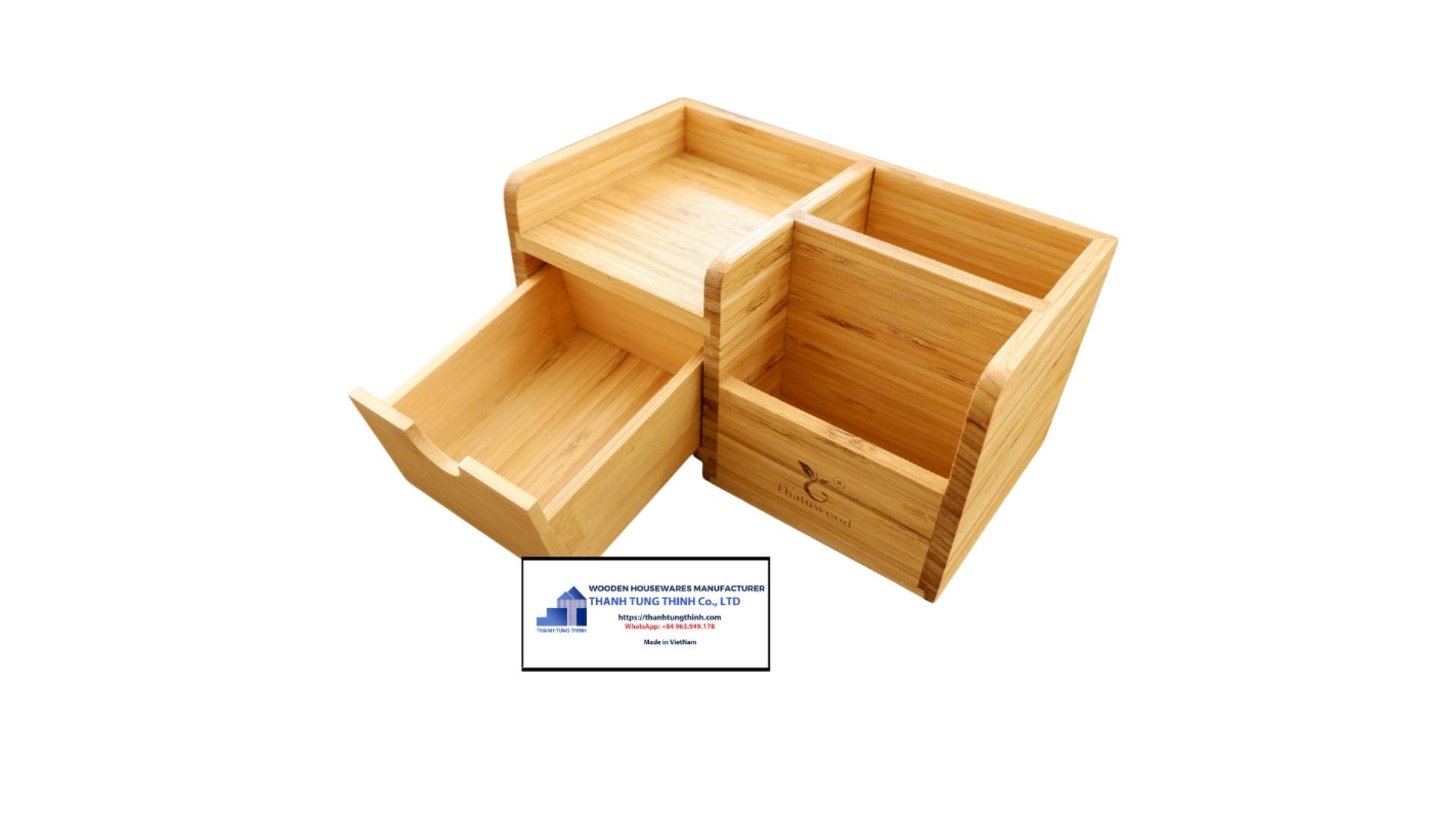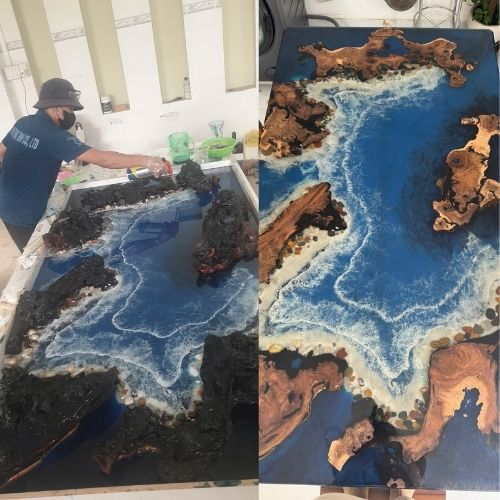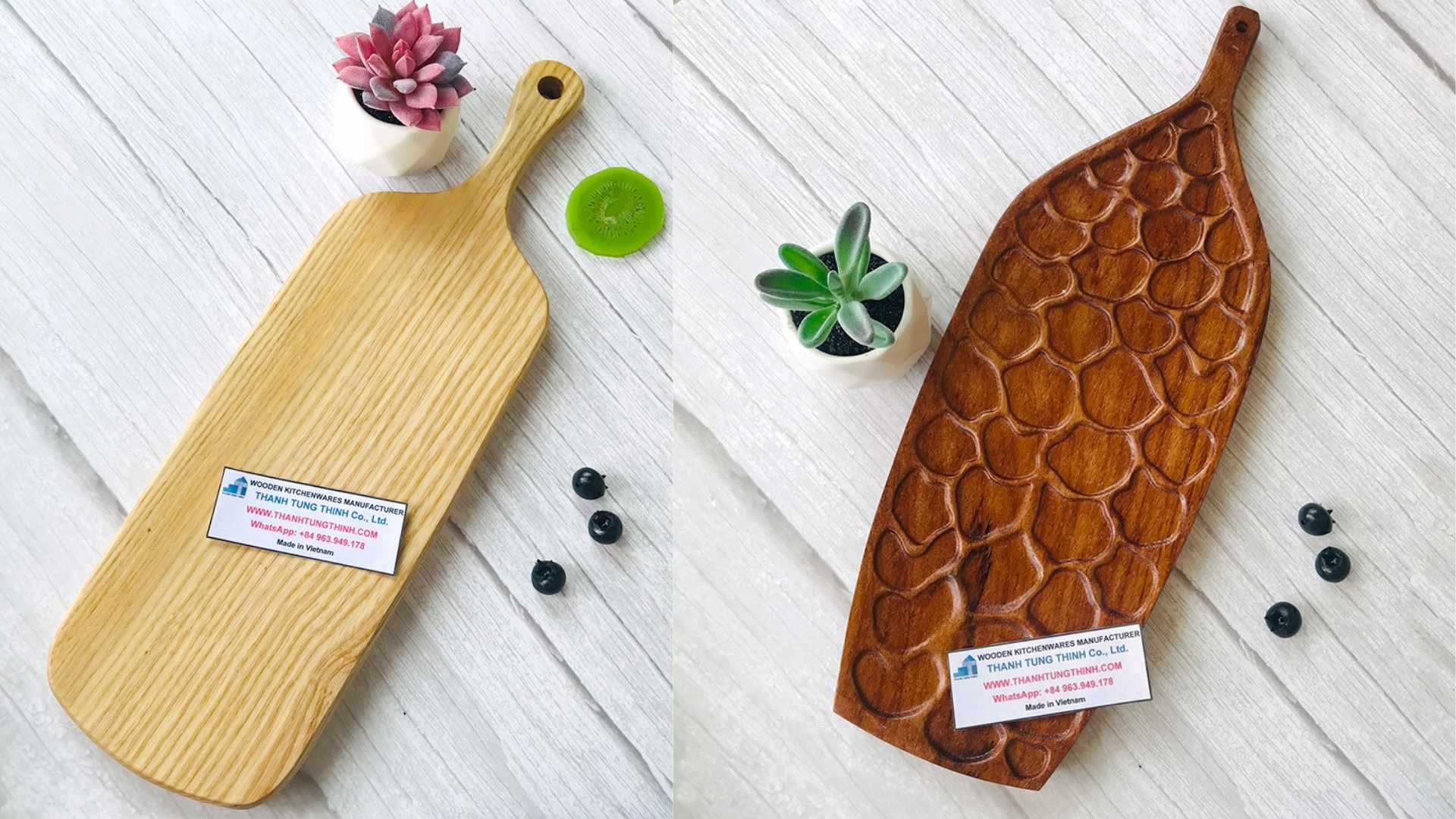Làm thế nào để nhập khẩu đồ dùng bằng gỗ từ các nhà sản xuất Việt Nam?
Làm thế nào để nhập khẩu đồ dùng bằng gỗ từ các nhà sản xuất Việt Nam?
Đồ dùng bằng gỗ của Việt Nam ngày càng trở nên phổ biến khi ngành sản xuất đồ dùng bằng gỗ của đất nước này tiếp tục phát triển. Những thiết kế độc đáo, chất lượng cao và giá cả phải chăng của các sản phẩm này khiến chúng trở thành lựa chọn hấp dẫn cho các nhà nhập khẩu muốn tìm nguồn cung cấp đồ dùng nhà bếp từ một nguồn tin cậy và tiết kiệm chi phí. Trong bài viết này, chúng ta sẽ cùng thảo luận về quy trình nhập khẩu đồ dùng bằng gỗ từ các nhà sản xuất Việt Nam, bao gồm tìm kiếm nhà sản xuất phù hợp, hiểu rõ các quy định và chứng nhận, và quản lý logistics.
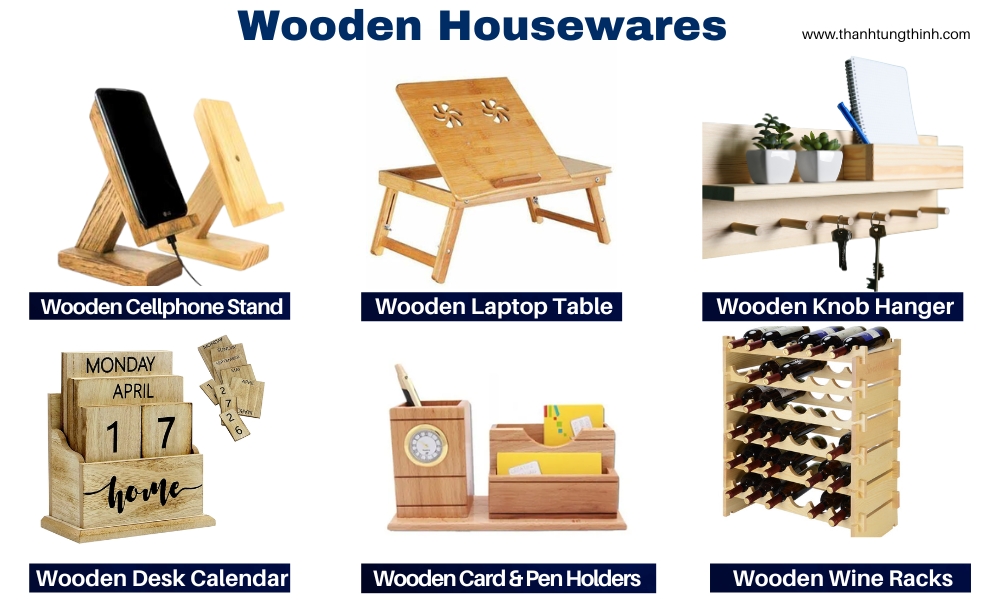
1. Hiểu về Thị Trường Đồ Dùng Bằng Gỗ Việt Nam
Việt Nam nổi tiếng với truyền thống thủ công phong phú và sản phẩm gỗ chất lượng cao. Ngành sản xuất đồ dùng bằng gỗ tại Việt Nam đã có sự tăng trưởng đáng kể trong những năm gần đây nhờ nhu cầu toàn cầu tăng và nguồn tài nguyên thiên nhiên phong phú của đất nước. Ngoài ra, đồ dùng bằng gỗ của Việt Nam thân thiện với môi trường, điều này khiến chúng hấp dẫn với những người tiêu dùng có ý thức bảo vệ môi trường.
1.1 Các Loại Đồ Dùng Bằng Gỗ
Các công ty sản xuất đồ dùng bằng gỗ của Việt Nam sản xuất nhiều loại sản phẩm, bao gồm:
- Dụng cụ và phụ kiện nhà bếp (muỗng, xẻng, thớt, v.v.)
- Đồ trang trí (khung ảnh, lọ hoa, v.v.)
- Nội thất (ghế, bàn, tủ, v.v.)
- Giải pháp lưu trữ (hộp, giỏ, v.v.)
1.2 Các Vùng Chính Sản Xuất Đồ Dùng Bằng Gỗ
Các vùng chính sản xuất đồ dùng bằng gỗ ở Việt Nam bao gồm:
- Thành phố Hồ Chí Minh và tỉnh Bình Dương ở phía Nam
- Hà Nội và tỉnh Bắc Ninh ở phía Bắc
- Các tỉnh miền Trung như Quảng Nam và Thừa Thiên Huế
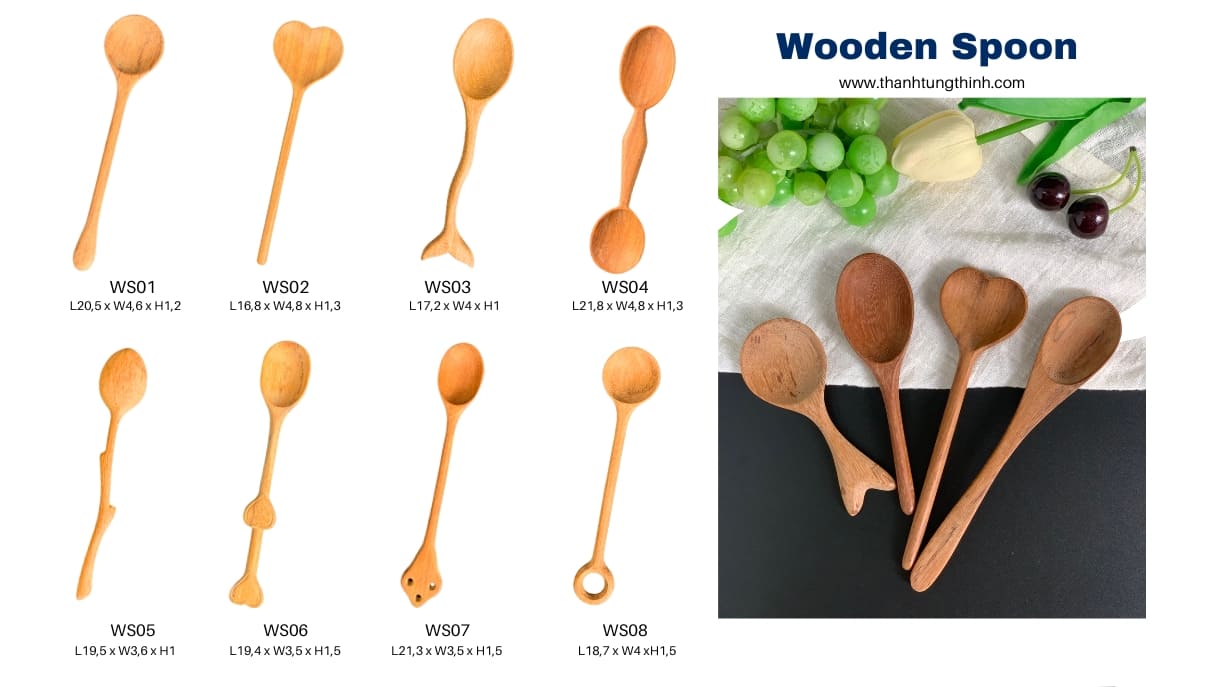
2. Tìm Công Ty Sản Xuất Đồ Dùng Bằng Gỗ Phù Hợp
Để nhập khẩu đồ dùng bằng gỗ từ Việt Nam, bạn cần tìm một nhà sản xuất đáng tin cậy và uy tín. Có một số cách để xác định các nhà sản xuất phù hợp với nhu cầu của bạn.
2.1 Nghiên Cứu Trực Tuyến
Một trong những cách hiệu quả nhất để tìm các nhà sản xuất đồ dùng bằng gỗ ở Việt Nam là thông qua nghiên cứu trực tuyến. Các nền tảng như Alibaba và Global Sources là nguồn tài nguyên tuyệt vời để xác định các nhà cung cấp tiềm năng. Bạn cũng có thể tìm kiếm các nhà sản xuất bằng cách sử dụng các từ khóa như "công ty sản xuất đồ dùng bằng gỗ tại Việt Nam" hoặc "nhà cung cấp đồ dùng bằng gỗ Việt Nam."
2.2 Hội Chợ Thương Mại và Triển Lãm
Một cách khác để tìm các nhà sản xuất là tham gia các hội chợ thương mại và triển lãm chuyên về đồ nội thất và đồ dùng gia đình. Những sự kiện này mang đến cơ hội gặp gỡ các nhà sản xuất trực tiếp, xem các sản phẩm của họ và thảo luận về yêu cầu của bạn. Một số hội chợ thương mại nổi bật tại Việt Nam bao gồm:
- Triển lãm Nội thất và Phụ kiện Nhà ở Quốc tế Việt Nam (VIFA-EXPO)
- Triển lãm bán lẻ và nhượng quyền quốc tế Việt Nam (VIETRF)
- Lifestyle Vietnam
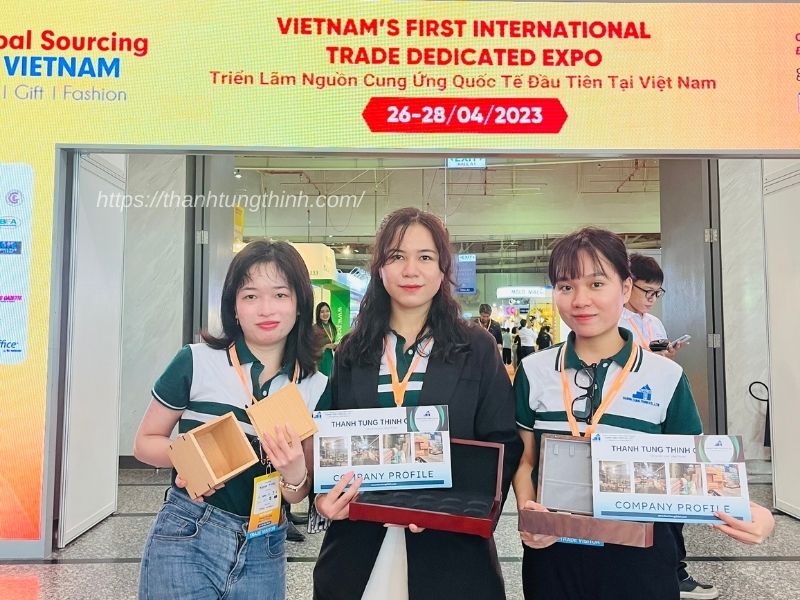
2.3 Thông Qua Đại Lý Tìm Nguồn
Thuê một đại lý tìm nguồn cung ứng có thể giúp bạn tìm một công ty sản xuất đồ dùng bằng gỗ phù hợp tại Việt Nam. Các đại lý tìm nguồn cung ứng có kiến thức sâu rộng về thị trường địa phương và có thể xác định các nhà sản xuất tiềm năng dựa trên yêu cầu cụ thể của bạn. Họ cũng có thể hỗ trợ trong việc đàm phán, kiểm soát chất lượng và logistics.
3. Đánh Giá Năng Lực Của Nhà Sản Xuất
Trước khi cam kết với một nhà sản xuất, điều quan trọng là đánh giá năng lực của họ để đảm bảo họ có thể đáp ứng nhu cầu của bạn. Một số yếu tố cần xem xét bao gồm:
3.1 Khả Năng Sản Xuất
Xác minh khả năng sản xuất của nhà sản xuất để đảm bảo họ có thể hoàn thành đơn hàng của bạn trong thời gian yêu cầu. Các nhà sản xuất nhỏ có thể có năng lực sản xuất hạn chế, trong khi các nhà sản xuất lớn có thể yêu cầu số lượng đơn hàng tối thiểu (MOQ) cao hơn.
3.2 Kiểm Soát Chất Lượng và Chứng Nhận
Kiểm soát chất lượng là một yếu tố quan trọng khi nhập khẩu đồ dùng bằng gỗ từ Việt Nam. Đảm bảo nhà sản xuất có quy trình kiểm soát chất lượng nghiêm ngặt và có thể cung cấp các chứng nhận và báo cáo kiểm tra liên quan, chẳng hạn như ISO 9001, FSC, hoặc chứng nhận CE.
3.3 Tùy Chỉnh Sản Phẩm
Nếu bạn yêu cầu đồ dùng bằng gỗ tùy chỉnh, hãy kiểm tra xem nhà sản xuất có thể đáp ứng yêu cầu thiết kế của bạn hay không. Điều này có thể bao gồm việc tạo ra các thiết kế riêng, lựa chọn vật liệu cụ thể, hoặc áp dụng các lớp hoàn thiện đặc biệt.
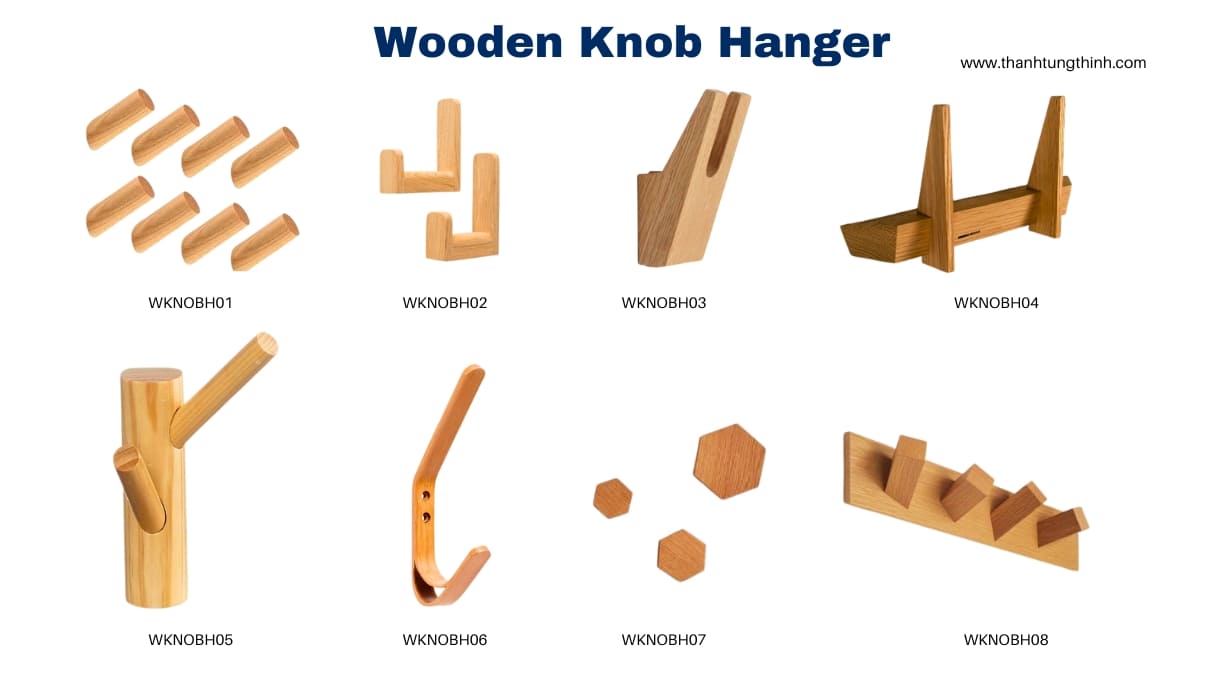
4. Hiểu Biết Về Các Quy Định và Chứng Nhận
Khi nhập khẩu đồ dùng bằng gỗ từ Việt Nam, điều quan trọng là phải nắm rõ các quy định và chứng nhận yêu cầu cho thị trường mục tiêu của bạn. Một số quy định quan trọng cần xem xét bao gồm:
4.1 Quy Định Về Hóa Chất và Kim Loại Nặng
Đảm bảo đồ dùng bằng gỗ tuân thủ các quy định về hóa chất và kim loại nặng, chẳng hạn như REACH của Liên minh Châu Âu hoặc Đạo luật Cải Thiện An Toàn Sản Phẩm Tiêu Dùng (CPSIA) của Mỹ.
4.2 Quy Định Về An Toàn Cháy Nổ
Các quy định về an toàn cháy nổ có thể áp dụng cho một số sản phẩm đồ dùng nhà bếp, như đồ nội thất có đệm hoặc sản phẩm giường chiếu. Ví dụ về các quy định này bao gồm tiêu chuẩn cháy nổ của Ủy ban An toàn Sản phẩm Tiêu dùng Mỹ (CPSC) hoặc California Technical Bulletin 117.
4.3 Tiêu Chuẩn Chất Lượng Sản Phẩm
Đảm bảo đồ dùng bằng gỗ đáp ứng các tiêu chuẩn chất lượng sản phẩm liên quan cho thị trường mục tiêu của bạn, chẳng hạn như ANSI/BIFMA cho đồ nội thất ở Mỹ hoặc các tiêu chuẩn EN cho các thị trường Châu Âu.
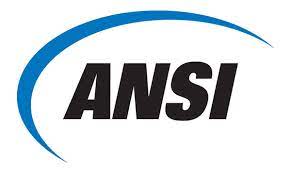
5. Đàm Phán Điều Khoản và Giá Cả
Khi bạn đã xác định được công ty sản xuất đồ dùng bằng gỗ phù hợp tại Việt Nam, việc đàm phán điều khoản và giá cả là rất quan trọng. Các điều khoản cần đàm phán bao gồm:
- Điều khoản thanh toán (ví dụ: Thư tín dụng, Chuyển tiền điện tín)
- Thời gian giao hàng và lịch trình sản xuất
- Điều khoản vận chuyển (ví dụ: FOB, CIF, DDP)
- Bảo hành và hỗ trợ sau bán hàng
Khi đàm phán giá cả, hãy nhớ rằng các nhà sản xuất Việt Nam có thể đưa ra mức giá cạnh tranh, nhưng điều quan trọng là phải cân bằng giữa chi phí và chất lượng.
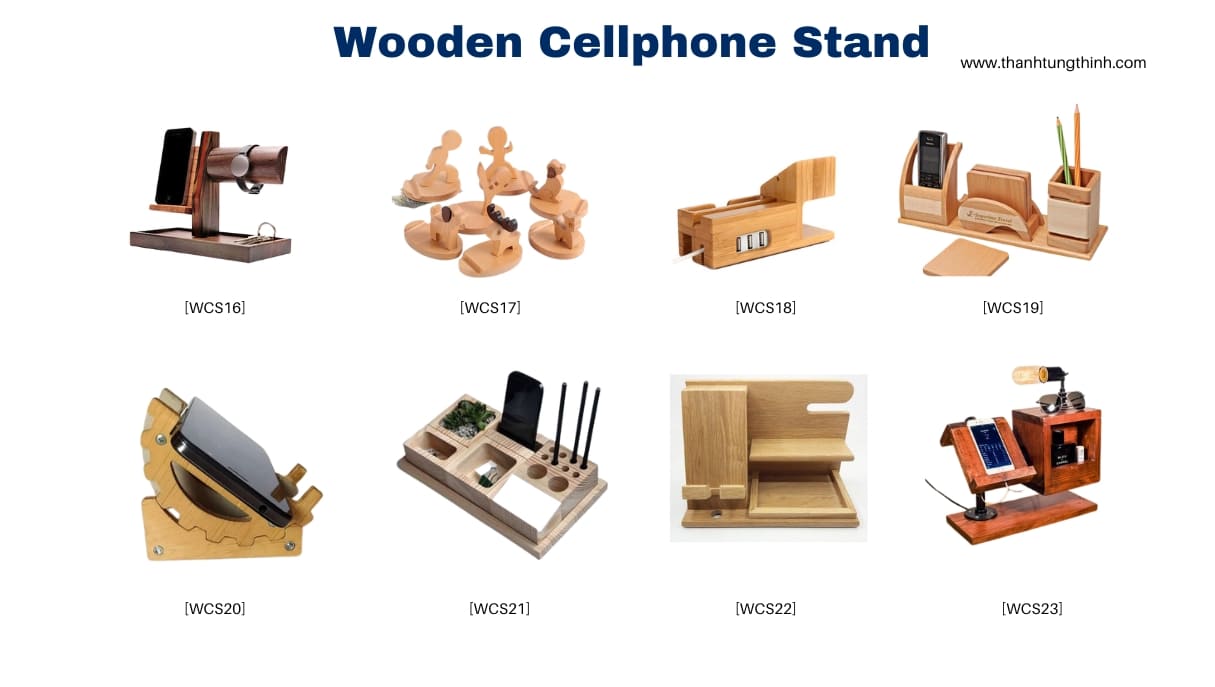
6. Quản Lý Logistics
Việc nhập khẩu đồ dùng bằng gỗ từ Việt Nam đòi hỏi phải quản lý logistics, bao gồm vận chuyển, thông quan hải quan và giao hàng. Một số yếu tố cần xem xét bao gồm:
6.1 Phương Thức Vận Chuyển
Có nhiều phương thức vận chuyển để nhập khẩu đồ dùng bằng gỗ từ Việt Nam, bao gồm vận chuyển đường biển, đường hàng không và dịch vụ chuyển phát nhanh. Vận chuyển đường biển là lựa chọn tiết kiệm chi phí nhất cho các lô hàng lớn, trong khi vận chuyển đường hàng không hoặc dịch vụ chuyển phát nhanh có thể phù hợp hơn cho các lô hàng nhỏ hoặc yêu cầu giao hàng nhanh.
6.2 Thông Quan Hải Quan
Đảm bảo bạn hiểu quy trình và yêu cầu thông quan hải quan khi nhập khẩu đồ dùng bằng gỗ vào thị trường mục tiêu. Điều này có thể bao gồm việc xin giấy phép cần thiết, thanh toán thuế nhập khẩu và thuế, và cung cấp các tài liệu yêu cầu.
6.3 Giao Hàng và Kho Bãi
Khi đồ dùng bằng gỗ đã hoàn tất thông quan, bạn cần sắp xếp giao hàng đến kho hàng hoặc trung tâm phân phối của mình. Hãy cân nhắc sử dụng dịch vụ của các công ty giao nhận hoặc nhà cung cấp dịch vụ logistics bên thứ ba để có giải pháp giao hàng và kho bãi hiệu quả và tiết kiệm chi phí.
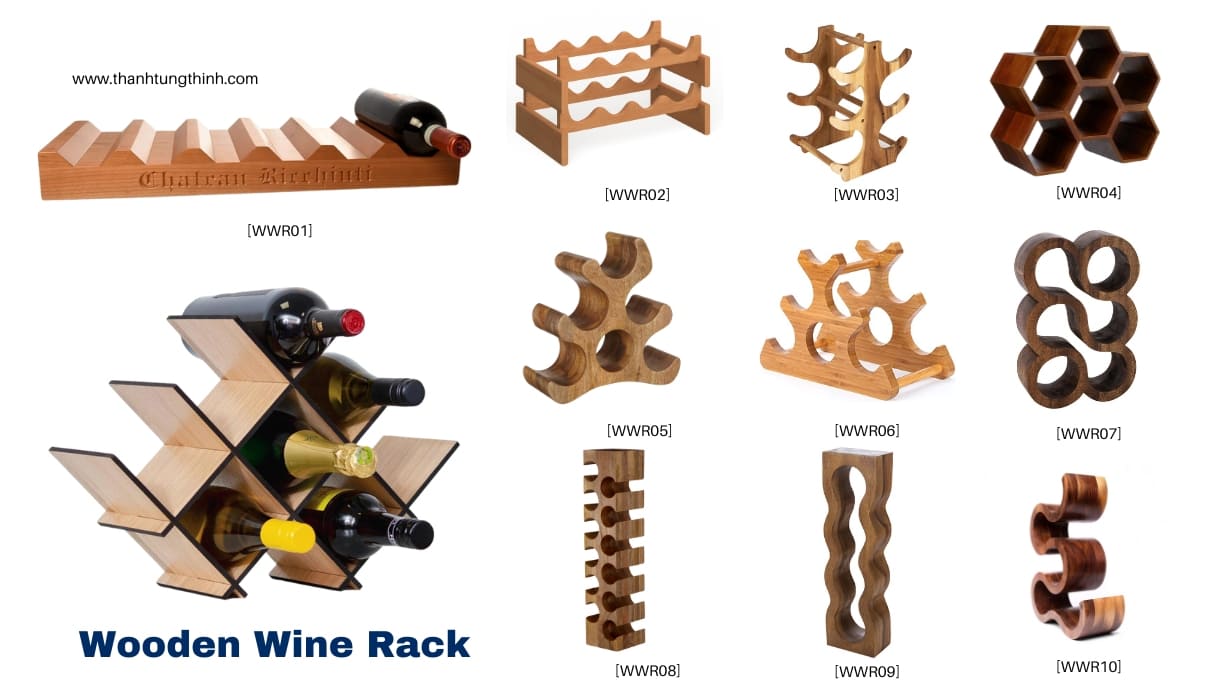
7. Kiểm Tra Chất Lượng và Đảm Bảo Chất Lượng
Kiểm tra chất lượng và đảm bảo chất lượng là những yếu tố quan trọng khi nhập khẩu đồ dùng bằng gỗ từ Việt Nam. Việc thực hiện kiểm tra trước khi giao hàng có thể giúp phát hiện các vấn đề trước khi sản phẩm rời khỏi Việt Nam, giảm thiểu rủi ro nhận hàng hóa kém chất lượng.
7.1 Kiểm Tra Trước Khi Giao Hàng
Sắp xếp kiểm tra trước khi giao hàng cho đồ dùng bằng gỗ để đảm bảo chúng đáp ứng yêu cầu chất lượng của bạn. Việc này có thể được thực hiện bằng cách tự mình đến thăm cơ sở sản xuất của nhà cung cấp hoặc thuê công ty kiểm tra bên thứ ba.
7.2 Đảm Bảo Chất Lượng
Làm việc với nhà sản xuất để thiết lập quy trình đảm bảo chất lượng và giải quyết bất kỳ vấn đề nào được phát hiện trong quá trình kiểm tra trước khi giao hàng. Điều này có thể bao gồm việc thực hiện các biện pháp khắc phục hoặc điều chỉnh quy trình sản xuất để nâng cao chất lượng.
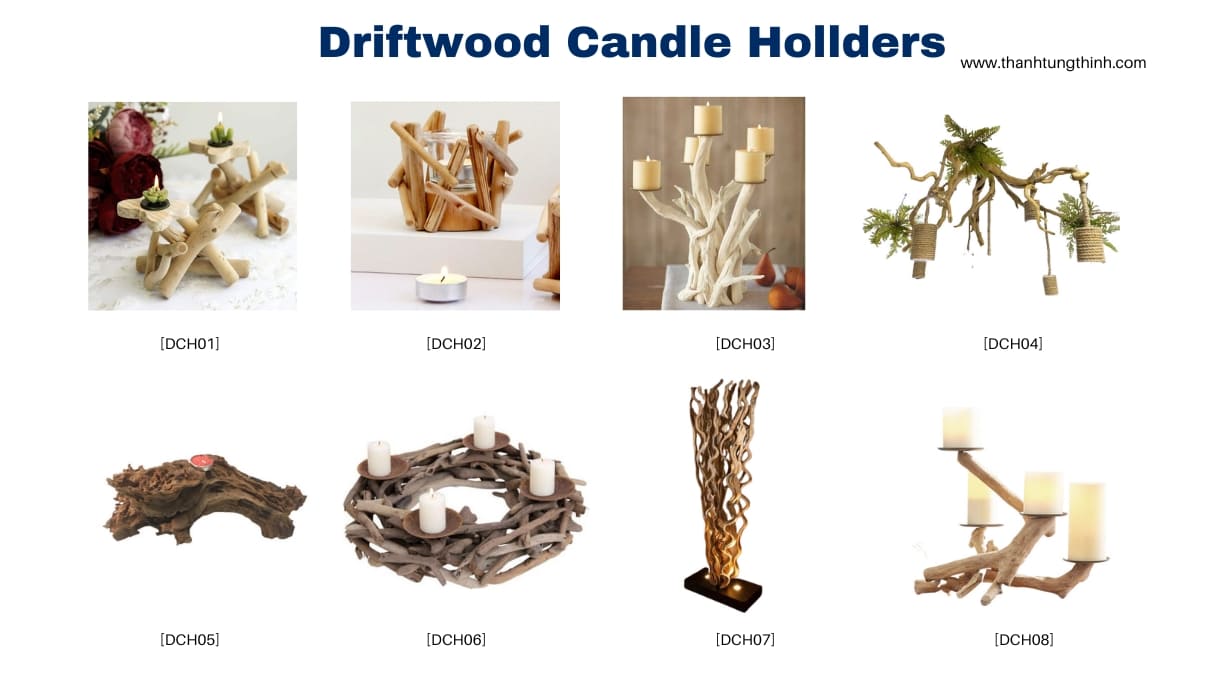
8. Xây Dựng Mối Quan Hệ Dài Hạn Với Các Nhà Sản Xuất
Xây dựng mối quan hệ lâu dài với một công ty sản xuất đồ dùng bằng gỗ đáng tin cậy tại Việt Nam có thể mang lại các điều khoản, giá cả và hỗ trợ thuận lợi hơn. Duy trì giao tiếp mở, cung cấp phản hồi về chất lượng và hiệu suất sản phẩm, và cùng nhau giải quyết các thách thức có thể phát sinh.
9. Tuân Thủ Các Tiêu Chuẩn Môi Trường
Khi người tiêu dùng ngày càng quan tâm đến các vấn đề môi trường, điều quan trọng là đảm bảo rằng đồ dùng bằng gỗ bạn nhập khẩu từ Việt Nam được sản xuất theo cách thức có trách nhiệm với môi trường. Hãy tìm các nhà sản xuất có chứng nhận như FSC (Hội đồng Quản lý Rừng) hoặc PEFC (Chương trình Chứng nhận Quản lý Rừng), các chứng nhận này cho thấy việc quản lý rừng và nguồn nguyên liệu có trách nhiệm.
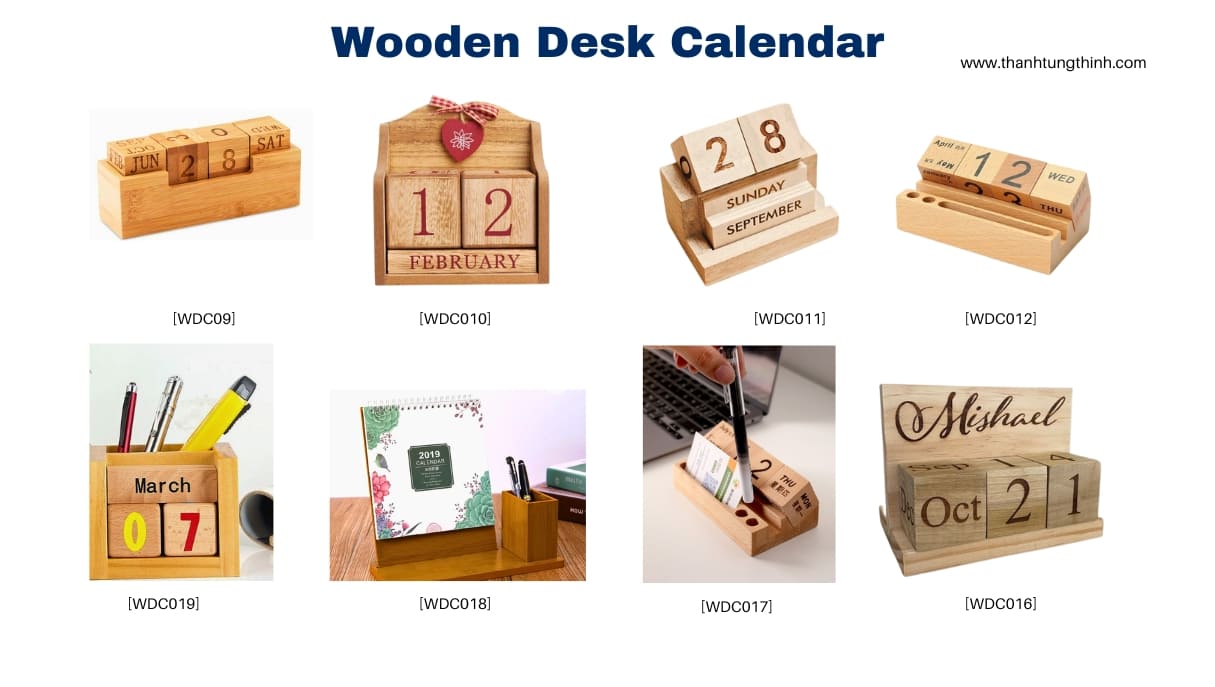
Tìm hiểu thêm về Kinh nghiệm tìm kiếm các nhà sản xuất sản phẩm gỗ Việt Nam mà bạn không nên bỏ qua.
10. Cập Nhật Thông Tin Về Các Xu Hướng và Phát Triển Thị Trường
Hãy luôn cập nhật thông tin về các xu hướng và phát triển trên thị trường ngành đồ dùng bằng gỗ để đảm bảo các sản phẩm của bạn vẫn cạnh tranh và phù hợp. Thường xuyên theo dõi tin tức ngành, tham gia các hội chợ thương mại và giao lưu với các chuyên gia trong ngành để cập nhật những xu hướng, công nghệ và sáng tạo mới nhất.
11. Công Ty Sản Xuất Đồ Dùng Bằng Gỗ Chất Lượng Cao - Thanh Tùng Thịnh Co. LTD
Chọn một nhà cung cấp đáng tin cậy và chất lượng cao là rất quan trọng khi nhập khẩu hàng hóa. Thanh Tùng Thịnh, với hơn 11 năm kinh nghiệm trong sản xuất đồ dùng bằng gỗ và các sản phẩm gỗ khác, cam kết mang đến cho bạn một trải nghiệm kinh doanh thuận lợi.
Các sản phẩm đồ dùng của chúng tôi được chế tác từ gỗ chất lượng cao, sử dụng công nhân tay nghề cao và máy móc hiện đại. Chúng tôi không tiếc công sức đầu tư vào cả thiết bị và nhân lực để nâng cao chất lượng sản xuất và mang đến những sản phẩm tốt nhất.
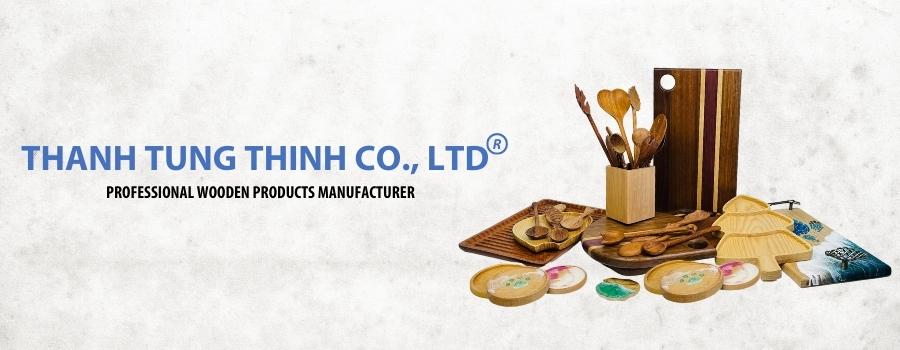
Hơn nữa, tận dụng nguồn tài nguyên gỗ phong phú của khu vực và lực lượng lao động chi phí thấp, chúng tôi đảm bảo rằng các sản phẩm của mình luôn có giá cạnh tranh mà không làm giảm chất lượng.
Bên cạnh đó, Công Ty TNHH Thanh Tùng Thịnh cam kết cung cấp dịch vụ khách hàng xuất sắc. Chúng tôi làm việc chặt chẽ với khách hàng để hiểu rõ nhu cầu và sở thích của họ, và cung cấp các giải pháp tùy chỉnh để đáp ứng các yêu cầu cụ thể. Với sự tập trung vào đổi mới, chất lượng và sự hài lòng của khách hàng, Công Ty TNHH Thanh Tùng Thịnh đã trở thành nhà cung cấp đồ dùng bằng gỗ đáng tin cậy cho khách hàng trên toàn thế giới.
Kết luận, việc nhập khẩu đồ dùng bằng gỗ từ các nhà sản xuất Việt Nam có thể là một cơ hội kinh doanh đáng giá và có lợi nhuận khi được thực hiện đúng cách. Bằng cách làm theo các bước được nêu trong bài viết này, bạn có thể thành công trong việc tìm kiếm nhà sản xuất đáng tin cậy, hiểu các quy định và chứng nhận, và quản lý logistics để đảm bảo một trải nghiệm nhập khẩu suôn sẻ và thành công.



